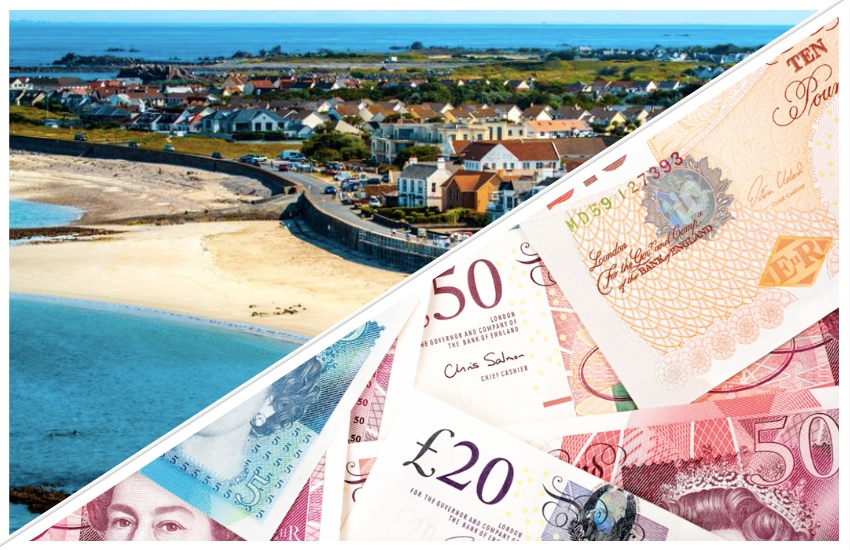


A lot has been made of Guernsey’s finance industry and how important it is to our global standing and financial strength. However, concerns have been raised recently about a large tranche of finance workers leaving the sector.
Specifically, during a recent States debate, one politician referenced a headline that claimed 13% of employees between 2016 and 2018 in Guernsey’s finance industry had left. Something about this statistic didn’t ring true for Deputy Nick Moakes, who decided to do some digging.
"You know, the numbers go up, the numbers go down, but that number doesn't bear any resemblance to anything I've ever heard or seen,” he told Express.
"So, I looked into it myself and the numbers just didn't go anywhere near as high as that.”
The original claim was that nearly 1,000 people had left the finance industry over the past six years, totaling a drop of 13%. It was compared against Jersey’s figures, where 880 people had joined the workforce over the same period.

A States of Guernsey representative has since responded, suggesting that this analysis was based on an incorrect use of data relating to 2016, which had been restated in 2019.
“It was stated in 2019 that figures had been revised due to a change in the economic sector classification codes applied to two large employers. Corrections were applied to the whole of the historic time series to maintain continuity and comparability of data.”
Taking this into account, the actual drop in employees in the finance sector has been 4.5% between March 2016 and March 2022.
“It should be noted that, in this area, Guernsey separates its financial services employees and its professional services employees whereas Jersey aggregates these two groups thereby producing a higher overall number,” said Deputy Moakes.
“Guernsey’s position reflects general market practice in respect of this type of data presentation. Information at a sub-sector level, which is available on request from the Data & Analysis team, enables a more like for like comparison between Jersey and Guernsey information, which with finance, accounting and legal activities combined indicates a decrease of 3% over the same time period.”

Deputy Moakes worked in financial services for 25 years in London before moving over to Guernsey and is now the Finance Sector Lead on the Committee for Economic Development.
He said that while the employment situation in Guernsey’s finance sector is “not as scary as it looks” it should still be looked at carefully and supported where possible.
When asked if a 4.5% drop is something to be nervous about, he said: “Well, I got concerned about it clearly. I would love to see numbers rising all the time.
“[However] there are also a significant number of open positions within Guernsey’s finance sector,” he said, suggesting that a lack of housing in Guernsey is impacting the industry’s ability to hire people.
Guernsey’s finance sector accounts for 36% of the island’s total GDP and the GVA (Gross Value Added) of the sector grew by 7% in nominal terms and 3% in real terms between 2020 and 2021.
Additionally, the latest update from the Global Financial Index saw Guernsey rise 12 places in the Global Financial Centres Index, beating Jersey and notable finance jurisdiction Luxembourg.
Express reached out to Guernsey Finance, the group representing the island’s finance industry on the global stage.
A spokesperson said: “Guernsey’s financial services sector remains the key driver of the island’s economy, employing almost a fifth of its workforce, with an estimated further 16% employed in supporting industries such as accountancy, law, audit and other professional services.
“Financial Services contributes £1,265 million to the Guernsey economy... more than the next 10 industries in Guernsey combined, many of which support the finance industry. It has been a steady and consistent driver of the economy.”

Additionally, the industry pays the highest median wages in Guernsey, and therefore offers up the biggest tax take.
Guernsey won European Domicile of the Year at the European Captive Review of the Year awards in 2022 and overtook Luxembourg in 2023 as Europe’s premier jurisdiction for Captive insurance. So, suffice to say, the industry appears to be quite healthy.
While, clearly, the industry is doing well, what does the future hold?
Recently two new investment managers established businesses in Guernsey, a licence has been issued for a new trust company and a New Currency Management Banking Licence has also been issued.
Guernsey will be attending COP28 in December and was represented at the United Nations Financial Centres For Sustainability Annual general Meeting in 2022.
"If you look around at the moment, you can see some very large buildings being built for financial services-based companies,” added Deputy Moakes.
"There's a lot of investment going on and you wouldn't be doing that unless things were going well.”
It’s important to accurately portray how Guernsey’s finance industry is doing because the island is about to face a MoneyVAL inspection in 2024.
That if the island fails and drops below international standards in financial regulation, we’ll see the swift exodus of massive financial institutions.
“MONEYVAL reports examine both technical measures and, importantly, the effectiveness of measures taken in the financial, regulatory and criminal justice sectors to combat money laundering and terrorist financing, and make recommendations to improve the AML/CFT system,” said the President of the Committee for Home Affairs, Deputy Rob Prow, last year.

A failed MoneyVAL inspection will see a jurisdiction move onto the Financial Action Task Force’s (FATF) greylist and a negative report can lead financial institutions in said jurisdiction to lose access to some levels of global financial architecture.
Guernsey has prepared for the inspection by establishing the Economic and Financial Crime Bureau (ECFB).
In conclusion, Guernsey’s finance industry – despite the very recent and very public collapse of Credit Suisse – seems to be in a good place.
"What I am trying to do is move away from this very negative 10% decline, which is inaccurate, as it's actually a very modest 4.5%, and show just how well the island is doing,” said Deputy Moakes. “It's actually performing well.”
When pushed again on the 4.5% decline, the conversation unsurprisingly came full circle and landed firmly at the feet of housing.
“There have been mergers, there have been acquisitions, and some people have moved back to offices in cheaper jurisdictions. There is a whole raft of different reasons [for a decline] but I still go back to the fact that, if we can fill each and every one of those [open] positions in the finance industry, we would be in a surplus position rather than a deficit position.
“One of the key reasons why the sector is unable to fill these roles is because of the lack of available housing.
“Seeking to address this issue should be a policy priority for the States. If we are unable to retain and attract staff, it will inhibit the ability of businesses to grow. This will have a knock-on effect on the wider economy.”
Comments
Comments on this story express the views of the commentator only, not Bailiwick Publishing. We are unable to guarantee the accuracy of any of those comments.